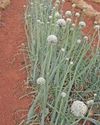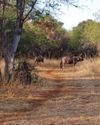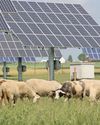
From where does your interest in the Karoo and idea for the book stem?
Although my career as a historian has been in the UK, I was brought up in Cape Town in the 1950s and 1960s. As a child I travelled through the Karoo every year, by train to Pretoria. The landscape was foreboding but its starkness was appealing.
My research interest in the environmental history of the Karoo came by an unusual route. Trying to understand more about the history and experience of African people was a central project. I did my doctoral research in Mpondoland in 1976-7 when the government policy of betterment or rehabilitation was still an important issue. Government planned to move rural African people from their scattered settlements into villages to demarcate selected areas for agriculture and to fence the vacated pasture lands.
INTERVENTIONS
The plan was to cull cattle through enforced sales. These were the major interventions in African rural life. The motivation for this largely unpopular policy was officials believed that the Bantustans were overstocked, causing soil erosion that would destroy agriculture. They were determined to introduce a system of rotational grazing and to end the kraaling of livestock. For this they had to clear the scattered settlements, empty out the communal grazing lands and fence them into camps.
The origins of these ideas led me to the Karoo, a different world of large, privately-owned farms, of drought, sheep and jackals. The Drought Commission of 1923, chaired by HSD du Toit, a South African War hero and senior agricultural official, inquired into environmental degradation and soil erosion, which it saw as a national disaster, especially in the Karoo.
Diese Geschichte stammt aus der November 17, 2023-Ausgabe von Farmer's Weekly.
Starten Sie Ihre 7-tägige kostenlose Testversion von Magzter GOLD, um auf Tausende kuratierte Premium-Storys sowie über 8.000 Zeitschriften und Zeitungen zuzugreifen.
Bereits Abonnent ? Anmelden
Diese Geschichte stammt aus der November 17, 2023-Ausgabe von Farmer's Weekly.
Starten Sie Ihre 7-tägige kostenlose Testversion von Magzter GOLD, um auf Tausende kuratierte Premium-Storys sowie über 8.000 Zeitschriften und Zeitungen zuzugreifen.
Bereits Abonnent? Anmelden

When short-term rentals make sense
Bianca Smit, national operations manager at CFAO Equipment SA, outlines factors to consider when choosing a rental equipment partner.

The timing of onion sowing is critical
Each onion variety has a different resistance to bolting, thus growers need experience and knowledge to guide them,

Understanding cannabis and hemp regulations in South Africa
South Africa's cannabis and hemp regulations remain a topic of debate and uncertainty, particularly when it comes to commercial use and small-scale production. Cannabis experts Shaad Vayej and Trenton Birch spoke to Octavia Avesca Spandiel about the challenges that small-scale cannabis and hemp farmers face.

European seed's influence on the US cannabis market
The expansion of European cannabis seed onto the US market is not just about economic growth; it’s also about enriching the landscape of US cannabis with diversity, innovation and education,

'It's important to get the right tool for the job'
The adoption of technology is crucial to sustaining efficiency gains and beating the cost-price squeeze in the agriculture sector.

A brilliant bushveld break between Bela-Bela and Modimolle
The distinctive touch, diligence, and 24/7 customer care are just a few of the reasons you should visit four-star Tourism Council-graded Pumula Game Farm,

John Deere: elevating performance and efficiency in modern farming
In the fast-paced world of farming, the right tools make all the difference.

The naval disaster Winston Churchill tried to hide
Three British warships were sunk by German naval gunfire on a dark day early in World War II, but the heroes who fought back received only muted recognition, possibly to avoid bad publicity,

Breaking down the principles of regenerative farming
Jean Hugo, a post-graduate student at the Tshwane University of Technology, and Leon Hugo, author on environmental matters and former professor of geography at the University of Pretoria, write about the importance of regenerative agriculture for small-scale farmers, and the challenges related to making the shift.

Ectoparasite control: more tips for livestock farmers
To reduce the mayhem that uncontrolled ectoparasites can create for communal farmers, it’s best to adopt a holistic approach in conjunction with veterinary remedies,